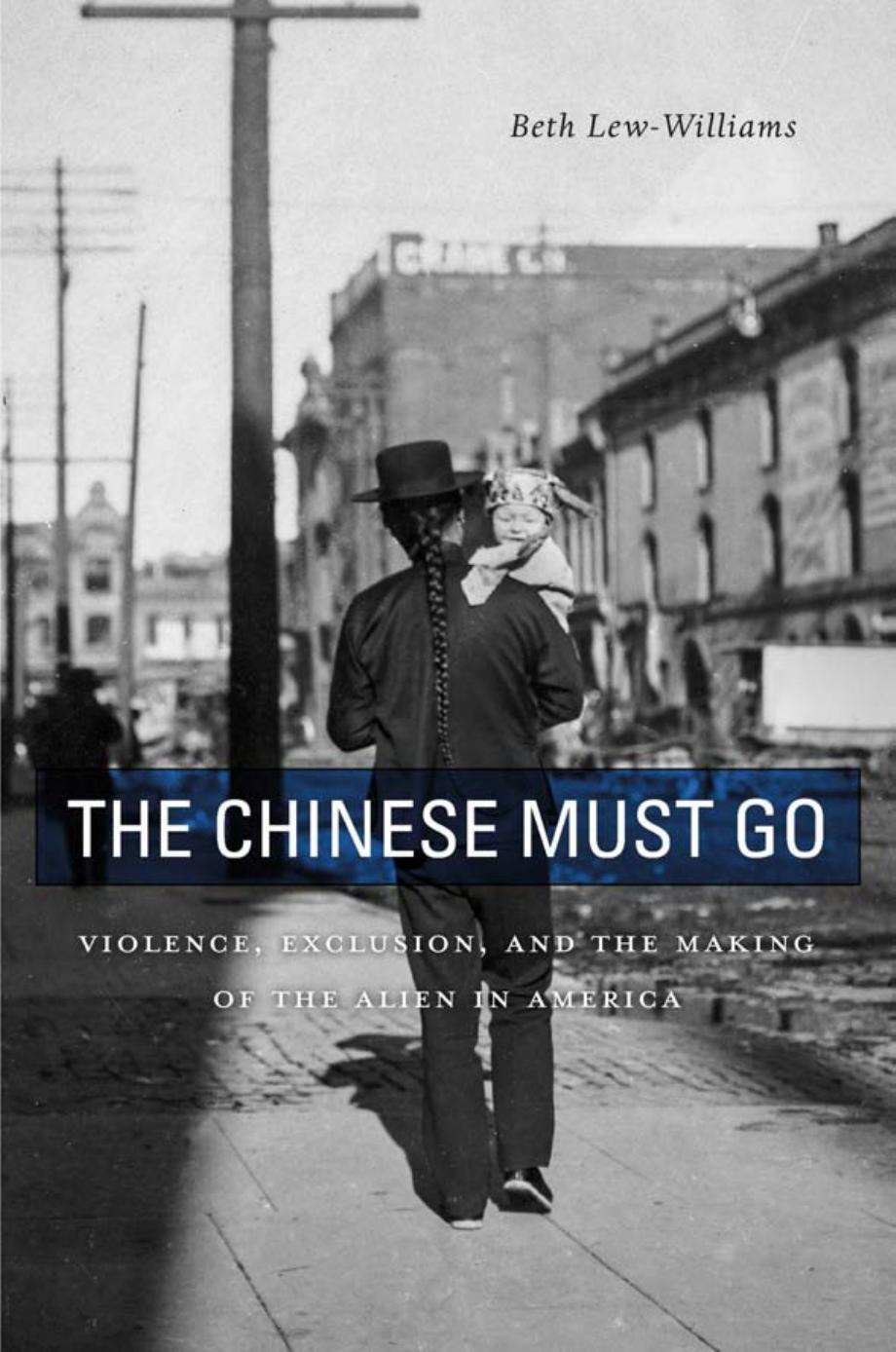The Chinese Must Go by Beth Lew-Williams

Author:Beth Lew-Williams [Lew-Williams, Beth]
Language: eng
Format: epub, pdf
Published: 2017-11-15T08:48:58+00:00
THE EXCLUSION CONSENSUS
181
Chinatown Fire in San Jose, California. Five thousand onlookers came to watch as
Market Street Chinatown burned on May 4, 1887. Following this act of arson, Chinese
residents relocated to the outskirts of the city, building Woolen Mills Chinatown and
Heinlenville Chinatown. History San Jose Photographic Collection, 1997-300-1683.
Courtesy of History San Jose.
duced eight bills with the purpose of strengthening the Chinese Restriction
Act, but none earned widespread support. There were only a few legislators
ready to abandon the possibility of a diplomatic solution and the coopera-
tive open door. Senator John H. Mitchell, a Republican representing Oregon,
became the spokesman for congressmen who were unwilling to wait for the
long- promised treaty. Claiming to speak for the people of the Pacific North-
west, he introduced a bill “abrogating all treaties . . . [that] inhibit the
United States from absolutely prohibiting the coming of Chinese to the
United States.”
Mitchell was aware, he informed the Senate, that “men hold up their
hands in holy horror” at even the suggestion that Congress should violate
existing treaty agreements and the delicate trust built between the two na-
tions. But unlike his fellow statesmen, he did not hold high hopes for the
China Trade. Armed with financial reports, he argued that “the balances
182 EXCLUSION
are all against us and the benefits with China.” China produced many prod-
ucts that Americans wanted to buy, but the United States produced few
commodities that sold well in China. The result was an imbalance of trade
and power. While Amer ica could risk losing the transpacific trade, Mitchell
observed, China could not. Mitchell wagered that China would never close
its ports to American merchants, no matter what insults Congress inflicted,
because of these stark economic realities. Therefore, he urged immediate
unilateral exclusion and presented a bill to that effect. West Coast represen-
tatives echoed his opinion. In the summer of 1887, a Senate foreign relations
subcommittee heard evidence from five senators and seven representatives
from California, Nevada, and Oregon. The congressmen asserted, without
exception, that 90 percent of their constituents would abandon all commerce
with China rather than accept Chinese migration. Most of the West Coast
was willing to sacrifice the cooperative open door for the sake of Chinese
exclusion.37
Many other congressmen, however, viewed Mitchell’s assessment of the
China Trade as shortsighted and his call for abrogation reckless. The Senate
referred his unilateral exclusion bill to the Committee of Foreign Affairs,
where it languished. Though white vio lence had convinced many skeptics
that exclusion was necessary, Congress remained committed to a diplomatic
solution. Senator John Sherman, an Ohio Republican and chair of the Com-
mittee on Foreign Relations, had been one of the holdouts in 1882, urging
limited restriction and diplomatic caution. But Eureka, Rock Springs, and
Tacoma made him into a ready advocate for exclusion in 1886. “[I]n the
opinion of the committee [on foreign relations], and I may say in the opinion
of the Department of State and of the Trea sury Department as well,” he de-
clared, “the time has come when the exclusion must be absolute.” Still,
Sherman, along with the majority of Congress, believed that the burden fell
on the executive branch. Congress earnestly and repeatedly petitioned the
president for a new treaty “to absolutely exclude Chinese laborers from this
country.
Download
This site does not store any files on its server. We only index and link to content provided by other sites. Please contact the content providers to delete copyright contents if any and email us, we'll remove relevant links or contents immediately.
| Anthropology | Archaeology |
| Philosophy | Politics & Government |
| Social Sciences | Sociology |
| Women's Studies |
Born to Run: by Christopher McDougall(7117)
The Leavers by Lisa Ko(6943)
iGen by Jean M. Twenge(5403)
Sapiens by Yuval Noah Harari(5361)
Spare by Prince Harry The Duke of Sussex(5173)
The Kite Runner by Khaled Hosseini(5160)
Machine Learning at Scale with H2O by Gregory Keys | David Whiting(4289)
Bullshit Jobs by David Graeber(4176)
Never by Ken Follett(3929)
Goodbye Paradise(3795)
Livewired by David Eagleman(3761)
Fairy Tale by Stephen King(3365)
A Dictionary of Sociology by Unknown(3065)
Harry Potter 4 - Harry Potter and The Goblet of Fire by J.K.Rowling(3054)
The Social Psychology of Inequality by Unknown(3013)
The Club by A.L. Brooks(2917)
Will by Will Smith(2899)
0041152001443424520 .pdf by Unknown(2842)
People of the Earth: An Introduction to World Prehistory by Dr. Brian Fagan & Nadia Durrani(2723)
